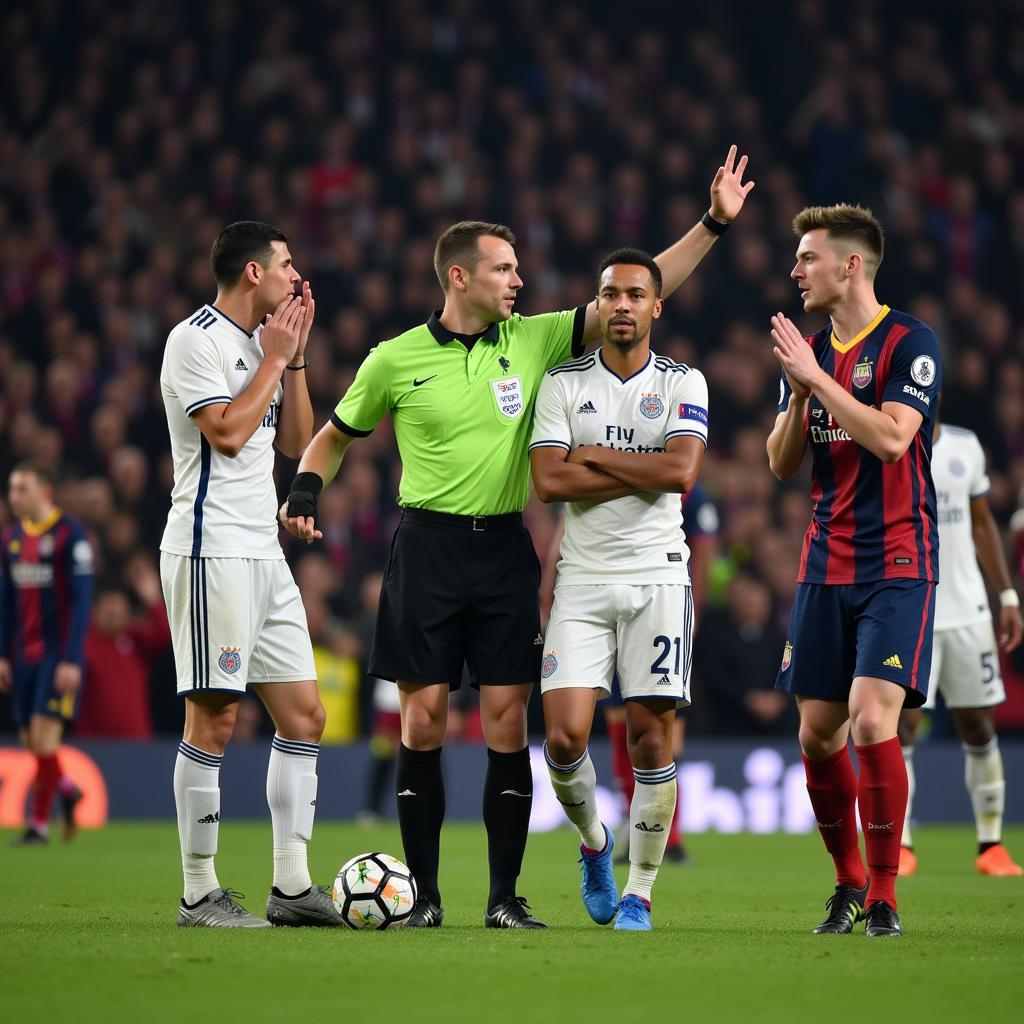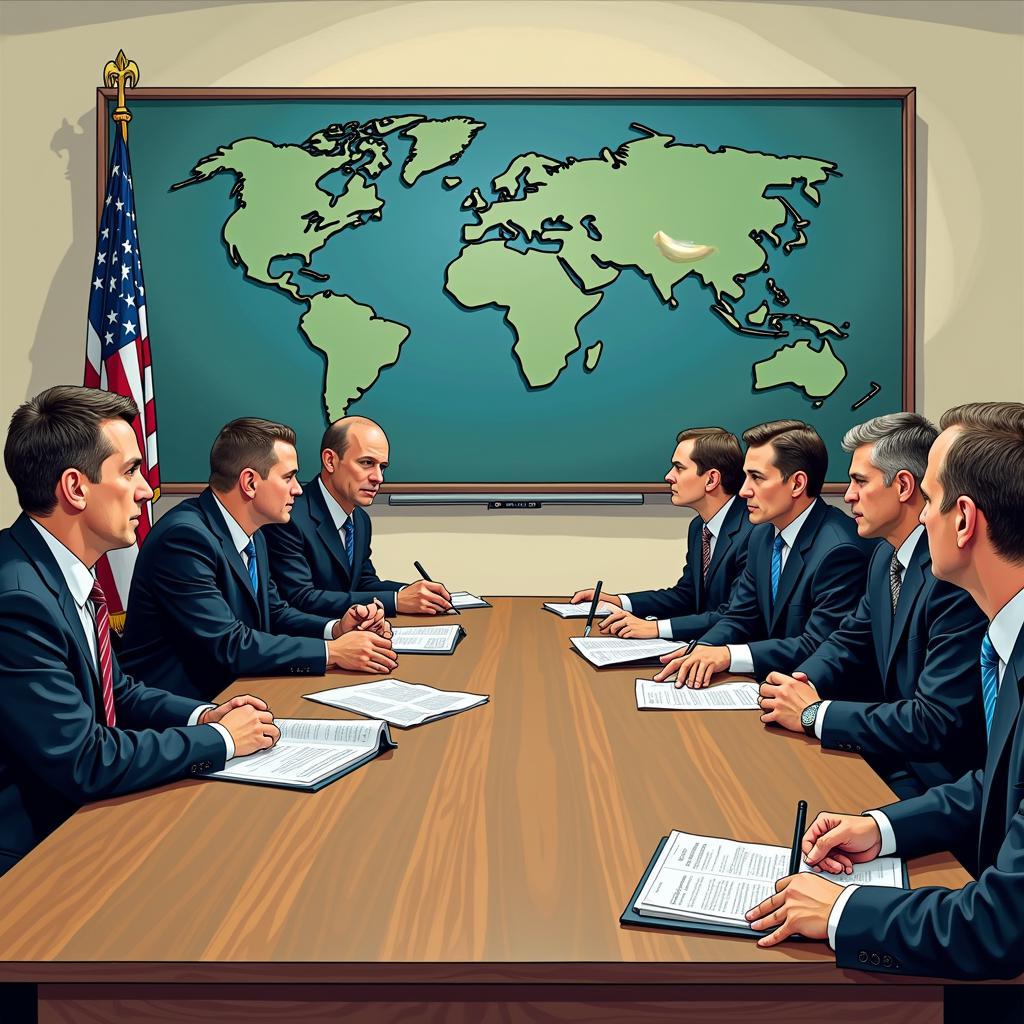Is Sports Rigged? Exploring the Controversies and Realities
October 30, 2024The question of whether sports is rigged, a topic that sparks debate and skepticism, is complex and multifaceted. From match-fixing scandals to questionable officiating calls, doubts about the integrity of athletic competition have persisted for years. This article delves into the various aspects of this contentious issue, examining the evidence, the motivations, and the consequences of potential manipulation in the world of sports.
Why People Suspect Sports is Rigged
The suspicion that sports is rigged often stems from several key observations. Controversial referee decisions, unexpected upsets, and seemingly improbable winning streaks can fuel speculation. The vast sums of money involved in professional sports, from broadcasting rights to gambling, create opportunities for corruption and raise concerns about the potential for manipulation. Additionally, the influence of powerful individuals and organizations, both within and outside the sporting world, can lead to questions about fairness and transparency.
The sheer pressure to win, combined with the allure of financial gain, can tempt athletes, coaches, and officials to engage in unethical practices. This pressure can be particularly intense in high-stakes competitions, where the rewards for victory are substantial.
 Controversial referee decisions in sports
Controversial referee decisions in sports
The Evidence: Real Cases of Match-Fixing and Manipulation
While skepticism is understandable, it’s important to differentiate between suspicion and proven instances of manipulation. History is replete with examples of match-fixing and other forms of sporting fraud. From the 1919 Black Sox Scandal in Major League Baseball to more recent incidents in tennis and cricket, the reality of match-fixing is undeniable. These cases often involve organized crime syndicates, exploiting vulnerabilities within the sporting system for financial gain. They highlight the ongoing need for vigilance and robust anti-corruption measures.
The Role of Gambling and Its Influence on “Is Sports Rigged?”
The prevalence of sports betting undoubtedly contributes to the perception that sports is rigged. Large sums of money wagered on sporting events create an incentive for individuals to manipulate outcomes. While the vast majority of sporting events are conducted fairly, the potential for profit from illegal betting activities makes it a constant threat to the integrity of competition. This is particularly true in less prominent leagues or competitions, where oversight and security measures may be less stringent.
 The influence of sports betting on suspicions of rigging
The influence of sports betting on suspicions of rigging
Protecting the Integrity of Sports: Measures and Organizations
Numerous organizations and initiatives are dedicated to combating corruption and maintaining the integrity of sports. Governing bodies, regulatory agencies, and law enforcement agencies work together to investigate and prosecute cases of match-fixing and other forms of sporting fraud. These efforts involve monitoring betting patterns, educating athletes and officials about the risks of corruption, and implementing strict regulations and penalties. The continued development and implementation of these measures are crucial for ensuring that sports remain a fair and competitive arena.
Is Sports Rigged? A Balanced Perspective
The question of whether sports is rigged is not a simple yes or no answer. While documented cases of manipulation demonstrate that the threat is real, the vast majority of sporting events are conducted fairly. The dedication of athletes, the professionalism of officials, and the passion of fans contribute to the overall integrity of the sporting world. However, the potential for corruption remains a constant challenge, requiring ongoing vigilance and proactive measures to safeguard the fairness and transparency of athletic competition.
 Protecting sports integrity through anti-corruption measures
Protecting sports integrity through anti-corruption measures
Conclusion: Maintaining Faith in Fair Play
While the question, “Is Sports Rigged?” lingers, it’s crucial to remember the core values of sportsmanship, dedication, and fair play. By acknowledging the potential for manipulation and actively working to prevent it, we can uphold the integrity of athletic competition and preserve the spirit of fair play that makes sports so compelling. Ultimately, the future of sports depends on the collective commitment of athletes, officials, organizations, and fans to uphold the highest ethical standards.
FAQ
- What are some common signs of match-fixing?
- How does gambling influence the potential for rigging in sports?
- What measures are being taken to combat corruption in sports?
- How can athletes and officials contribute to maintaining the integrity of sports?
- What is the role of fans in ensuring fair play in sports?
- What are some historical examples of match-fixing scandals?
- What are the potential consequences of sports rigging?
Common Scenarios Regarding Sports Rigging Inquiries
- Scenario 1: Fans questioning a referee’s decision in a crucial game.
- Scenario 2: Speculation about a team’s unexpected winning streak.
- Scenario 3: Concerns about the influence of gambling on a particular sport.
Further Questions and Related Articles
- How can technology be used to detect and prevent match-fixing?
- What are the legal ramifications of participating in sports rigging?
- The psychology of match-fixing: Why do people engage in it?
For assistance regarding any concerns about Yamal or related topics, please contact us: Phone: 0915117113, Email: [email protected] or visit us at: Hamlet 3, Binh An Hamlet, Phu Thuong, Vietnam, Binh Phuoc 830000, Vietnam. We have a 24/7 customer service team.